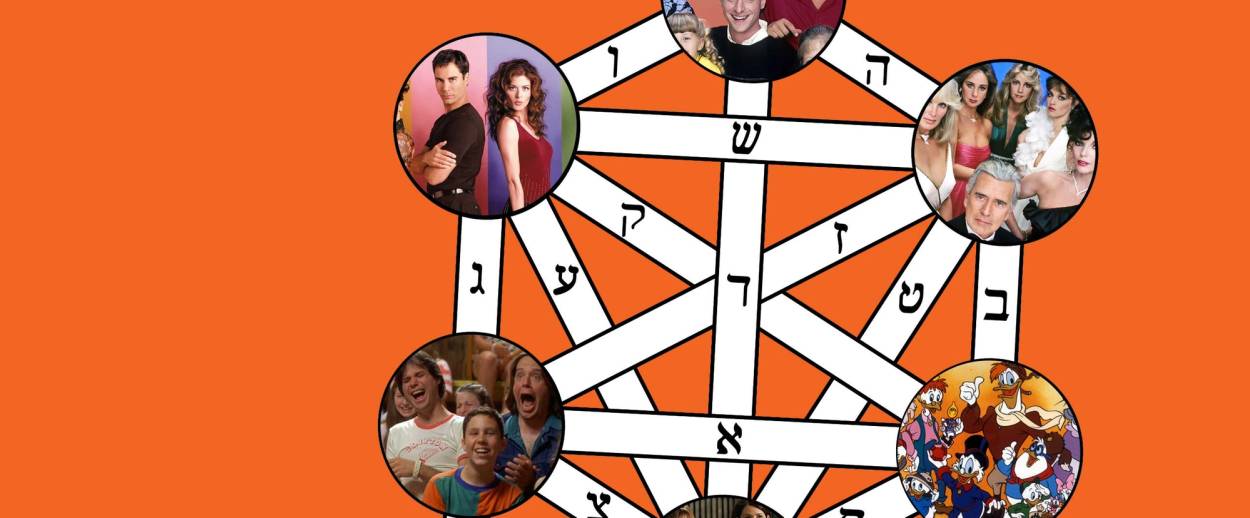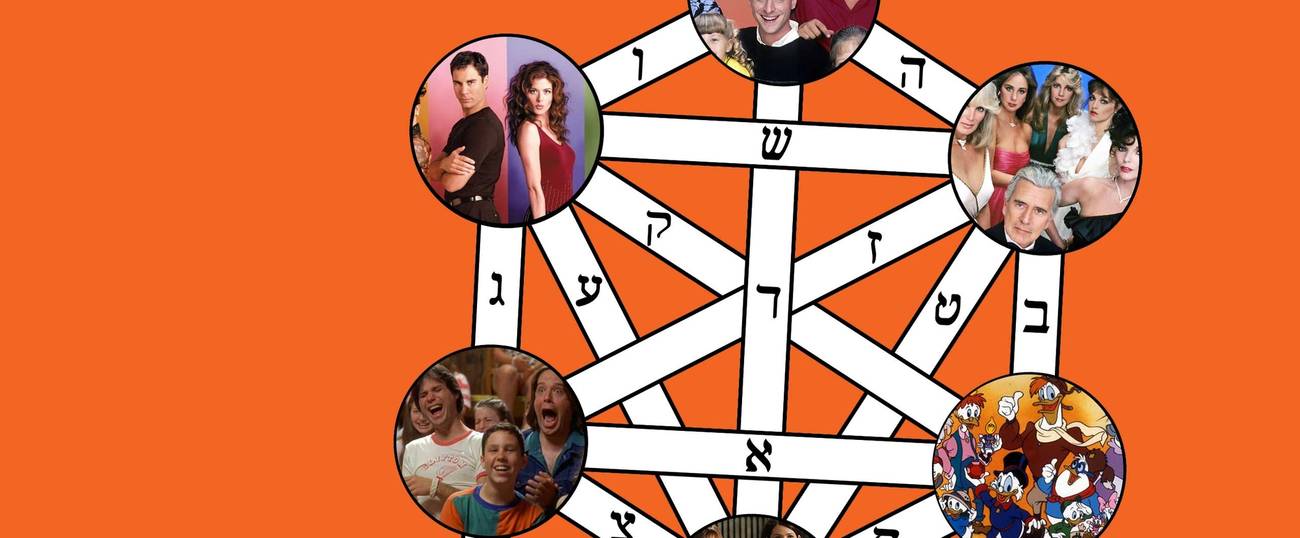All Those TV Remakes Are Good for Your Soul. Seriously.
This fall season, Hollywood finally catches up with kabbalistic notions of repetition and reincarnation, giving us all one more shot at working through the stories of our lives




It’s September, which, for those who harbor religious sensibilities, can only mean one thing: The high holidays will soon be upon us. And by the high holidays, I, of course, mean television’s new fall season.
How much we’ll soon have to keep us entertained! Will and Grace will soon be revived, DuckTales is being reanimated, Roseanne’s family reunited, and the crew of the U.S.S. Enterprise will soon embark on another Star Trek. Wait just a little bit longer and you’ll be treated to another turn at Dynasty, one more serving of Queer Eye for the Straight Guy, and a reincarnation of Heathers, all of which fits in snugly with the already airing returns of Twin Peaks, 24, and Prison Break.
What to make of all the remakes? To hear the cackling cockalorums who too often pass for critics these days, it’s because Hollywood has run out of ideas, and, cravenly banking on that basest form of currency, nostalgia, it serves up nothing but reheated offal.
Nothing could be further from the ecstatic truth. Our creative souls, bless them, have finally stumbled upon the idea, so central to Judaism, that life and everything in it keeps recurring, playing itself out again and again in the same way, moving not forward in a straight line but around and around, like a wheel of fortune.
Well, maybe not quite a wheel: God, after all, exists outside of nature, predating time and the universe, and we, his emanations, were created at some point along with our fallible world, thus beginning the tortuous process we call history. But once inside it, once the clock began ticking, we mortals soon discovered that there was more than a grain of truth in the wisdom of Kohelet: “The wind goeth toward the south, and turneth about unto the north; it whirleth about continually, and the wind returneth again according to his circuits. All the rivers run into the sea; yet the sea is not full; unto the place from whence the rivers come, thither they return again.” And we return again, too, only to realize there is nothing new under the sun.
If you find this God stuff confusing, just think of Dan. Sublimely portrayed by John Goodman, the character, Roseanne’s gruff but lovable husband, met his maker 20 years ago when the show’s original run ended. When it returns next year, so will Dan, a prime example of what the Kabbalists call gilgul neshamot, or the transmigration of souls: We are all sparks of the creator’s divine light, which is why it’s only natural that we seek to reunite with the Big Source in the sky, and which also means that we’re destined to take turn after turn after turn at this mortal coil until we fulfill our destiny. Cain and Abel, to name but one prominent example provided by the ancient rabbis, had their original spiritual mission cut short by that nasty business of murder and so returned, a spell later, as Moses and Jethro, handling their conflict a little better this time. And Dan, felled by a heart attack brought about by saturated fats and ceaseless stress, will return to face the same demons, alive again and none the wiser.
Like all of us, he will not be free of history. Having found it hard to make a decent living in 1997, we can only imagine what Dan might think of the modern serfdom brought about by the grotesquely misnamed sharing economy, in which men like him work even harder and enjoy even fewer safety nets than they did four years after NAFTA sent nearly a million of their jobs to Mexico. But the metaphysical questions that had dogged Dan before—of life and labor, of love and loss, of family and fortune—will continue to dog him again and evermore. Nine seasons aren’t nearly enough to grapple with such eternal questions; it takes a lifetime.
We should all be grateful to TV, then, for finally abandoning its illusions of forward motion and focusing instead on the eternal recurrences of all that is tried and true. Give us another shot at Will and Grace and Dan and Roseanne and Blake and Alexis and Special Agent Dale Cooper. Let us live the way the midrash tells us all babies do, imbued with all the secrets of existence and then struck, at the very moment of our birth, by an angel who dooms us to forget it all and spend our days recalling what we had always known. There’s no need for new stories when the old ones, the stories of our lives, have hardly been resolved. Life isn’t something we can just run away from, like a hotel bill or a crying baby. Karen said that, by the way, and boy, is it good to have her back.
***
Like this article? Sign up for our Daily Digest to get Tablet Magazine’s new content in your inbox each morning.
Liel Leibovitz is editor-at-large for Tablet Magazine and a host of its weekly culture podcast Unorthodox and daily Talmud podcast Take One. He is the editor of Zionism: The Tablet Guide.